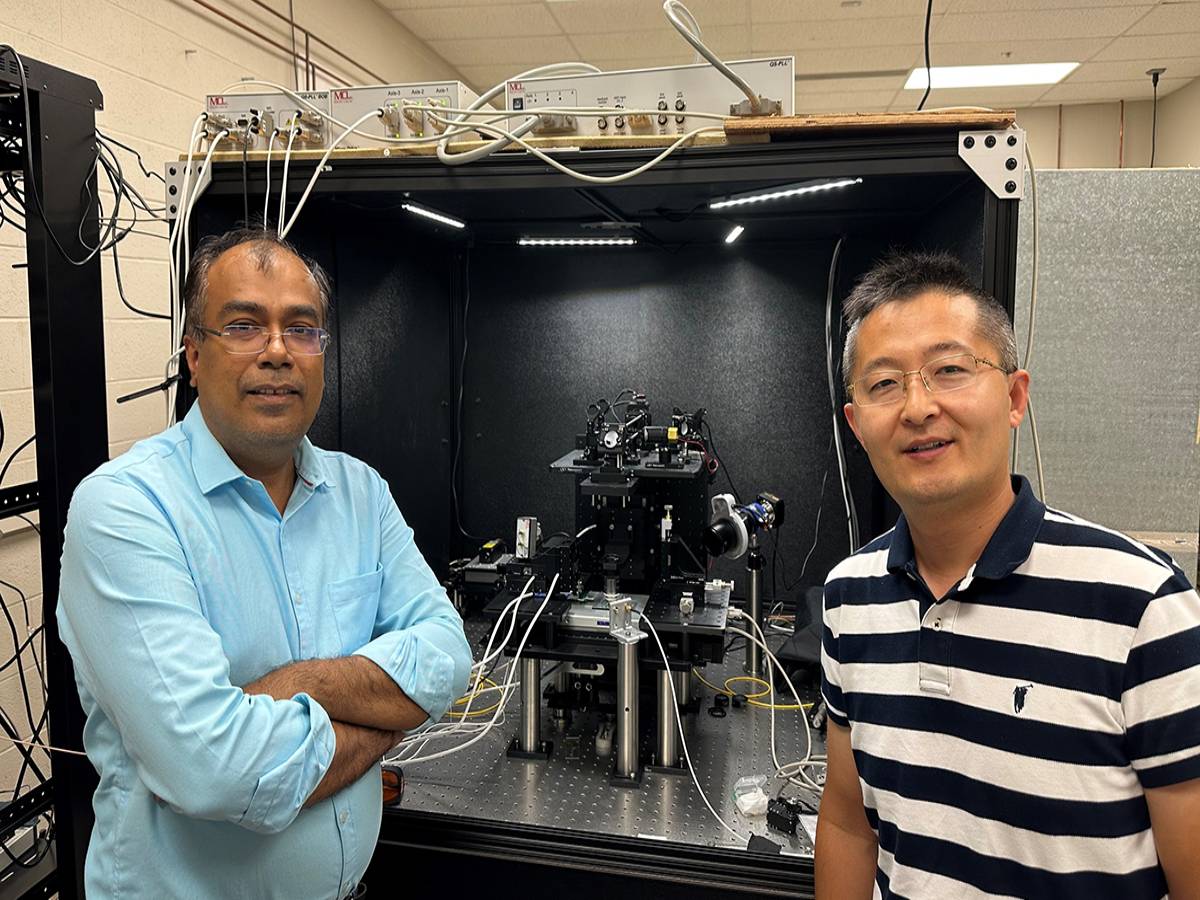Quantum technology makes everyday life safer and more productive.
It’s used in fields such as health care, communications, national defense and computing. Quantum materials make it possible to develop precise and accurate lasers for use in LASIK surgery. GPS systems can be made more secure and impossible to jam.
These applications and advances rely on scientists to find better, more efficient ways to produce quantum technology.
“Congress enacted the National Quantum Initiative Act in 2018 to fast-track quantum research and workforce development,” Jian Wang, assistant professor of chemistry, said.
Wang and Kapildeb Ambal, assistant professor of physics, are using an $800,000 grant from the National Science Foundation to support their work in understanding and controlling decoherence in hybrid spin qubit-magnon systems. Abdelghani Laraoui, assistant professor of mechanical and materials engineering at the University of Nebraska-Lincoln, is also involved as a research partner.
Quantum computers use qubits, which are analogous to classical computing’s bit, but have properties allowing for exponentially faster performance. One of the potential barriers is decoherence, or loss of phase information in quantum states. Sometimes referred to as noise, decoherence can contribute to errors by quantum computers, and change the quantum state of qubits.
“This project focuses on designing and building quantum interconnects to pass quantum information among the qubits,” Ambal said. “We want to design or fabricate in terms of material and structure of a realistic interconnect. If we are successful, then the next project will be to put a qubit at the end of it and send the information back and forth between them.”
Ambal and Wang will be including K-12 teachers in this project, as well as undergraduate and graduate students.
“We’ll be working with AP teachers to develop teaching modules related to quantum technologies in schools, with the goal to develop enthusiasm among students,” Wang said.
Wichita State students can be involved with building parts of the project, such as small spot design, or collecting data.
“We are interested in hiring STEM undergraduate students, especially the underrepresented students, to work with us on this project.” Ambal said. Students may contact either faculty member at kapildeb.ambal@wichita.edu or jian.wang@wichita.edu.


 Courtesy photo
Courtesy photo